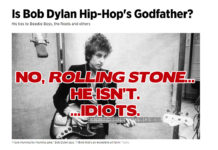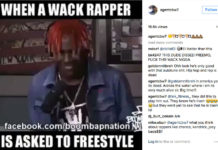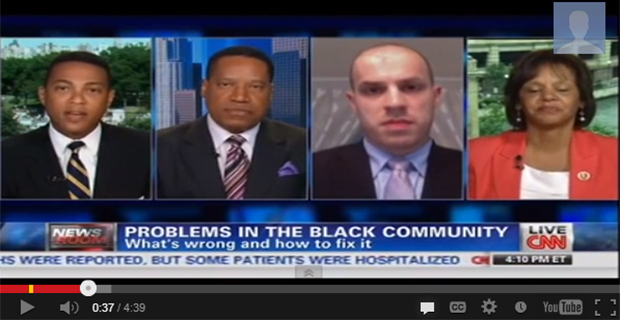Don Lemon, anchor on CNN, took to the airwaves recently with a firm editorial regarding some of the issues that he feels the African-American community should focus on, in order to “clean up its act.”
Many of his points were common sense, and an example of “real talk,” however, some of Lemon’s “no talking points” fell victim to the mistake of focusing on symptoms, rather than the cause of many problems.
In our circles, Lemon struck a negative chord with many when invoking hip hop as “glorifying” negative behavior, a common, frankly lazy argument point often brought up by those who don’t grasp, or want to admit, the complex nature of hip hop music and culture.
To do so is out of the scope of this brief response, but suffice it to say, the counter-argument, which is more often than not left out of the discussion, remains that generally, rap music portraying behavior which society might find unsavory, is actually frowned upon by large portions of the hip hop community.
Chew on that for a minute, non-believers. “Negative” rap music is actually a thorn in the side of a great many hip hop fans, participants and connoisseurs.
If that’s too tough a concept to understand, let me also fall back to the most common, logical counter-argument:
Rap music that portrays behavior which many find upsetting continues to be the result of, not the cause of, ills within the African-American community.
In fact, in response to Lemon’s black-on-black critique regarding sagging pants, Michael Skolnik of GlobalGrind.com, responded rather well:
“You’re talking about sagging pants. I’ve heard this rap for years. Let’s stop talking about sagging pants, and let’s talk about why we incarcerate 2.2 million people in this country, and why young kids look up to guys who come out of jail. We waged a war against black and brown people forty years ago, the War on Drugs, and it failed miserably, and now we’re reaping the repercussions.”
He went on to rebut Lemon with:
“Black men went to jail as diseased drug addicts, and they came out as criminals, because they taught them criminal behavior in jail. It’s not glorifying it, it’s a reflection of our society. Our society incarcerates 2.2 million people, more than anyone else in the world. It’s a reflection, it’s a mirror. Don’t break the mirror. Look at yourself.”
Despite my long-standing issues regarding Skolnik and GlobalGrind.com’s irresponsible track record, his response was accurate and rather poignant. More important than this brief shining moment for Skolnik however, was the fact that hip hop had a representative that could speak on its behalf. This is a rare moment in of itself.
Of course, I’m ignoring also the fact that Skolnik’s response wasn’t so much a defense of hip hop, rather, a much-needed redirection toward discussing some of the root causes of the negative behavior Lemon was speaking on. Important, yes, but not a true defense of hip hop. More on that another time. For now, it was good to at least see hip hop being moved aside in this conversation, rather than being a focal point.
The larger issue to me is why such an intricate, developed, global and complex sub-culture as hip hop is so rarely given the opportunity to defend itself properly.
Mainstream news media, if they expect to be taken seriously by the ever-growing constituency that is the hip hop generation (and its now coming-of-age children), must understand that hip hop music and culture is much more than what is portrayed by the corporate entertainment industry.
To speak on any topic and include hip hop in the conversation, without providing someone to provide intelligent, knowledgeable and agenda-free counterpoints displays an egregious lack of journalistic integrity.
To continue to perpetuate the negative stereotypes that people have about hip hop music and culture, without providing even the slightest hint that there is more to the hip hop universe than meets the eye, is an insult to countless members of a proud, strictly American-born and bred lifestyle that can be as inspiring as any other, if only given the chance.
The suggestion that violence in the African-American community can be improved if young black men stop sagging their pants is almost as illogically equivalent to suggesting that gay men, in an attempt to reduce the rise of HIV/AIDS in their community, stopped frolicking around in such an aggressively “gay” way because it makes them look bad.
Sure, sagging pants may be off-putting to some, as might be flamboyant displays of homosexuality. But neither example of expression, (free, constitutionally-protected expression I might add), really have anything to with the larger issues.
And funny, nobody seems to suggest that white boys getting tattoos mimics some of the bad-ass bikers found in their communities. Does that not happen? In fact, aren’t all youth, across the board, impressionable and easily drawn to a rebellious element?
Grunge-influnenced style. Goth. Skaters. Piercers. All groups with equally questionable taste in fashion, but it is hip hop-influenced style that gets singled out, mischaracterized and somehow linked to violence.
Face it, Skolnik was right. If sagging pants, as Lemon suggested, are done to mimic young black males’ jailed counterparts, the real issue is why so many of their community are jailed in the first place. The issues that plague the African-American community are absolutely an epidemic that require immediate, thoughtful, sincere and multipronged solutions, but to spend valuable national air-time connecting them to hip hop is hack journalism at best.
This particular exchange aside, it is imperative that mainstream news media actually begins to treat the massive and multifaceted hip hop universe with respect. It is up to them, their producers, anchors and others behind the scenes, to properly research topics and book guests who can provide intellectual counterarguments to the continuous stream of misinformation being put out about hip hop music and culture.
Continuing to do otherwise can be seen as nothing less than an ongoing discriminatory assault on a great portion of the American public and a large slice of modern Americana.
As an institution that is supposed to protect again just such things, it is a disgrace for journalism to continue to behave in this manner.
[LISTEN] Manny Faces discusses his editorial on the 7/28 episode of The NY Hip Hop Report
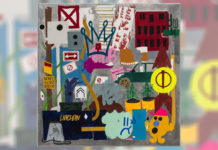

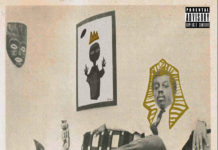
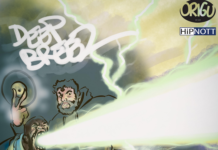

![The Underachievers – Crescendo [VIDEO]](https://www.birthplacemag.com/wp-content/uploads/2017/08/hqdefault-2-218x150.jpg)


![Fat Joe & Remy Ma ft. The-Dream – Heartbreak [VIDEO] Fat Joe Remy Ma The Dream - Heartbreak Video](https://www.birthplacemag.com/wp-content/uploads/2017/05/fat-joe-remy-ma-218x150.jpg)
![JSWISS featuring Chandanie – LML [VIDEO] JSWISS featuring Chandanie - LML [VIDEO]](https://www.birthplacemag.com/wp-content/uploads/2017/05/JSWISS-218x150.jpg)

![Akinyemi Ends Summer With “Summers” EP Release Show [9-17-17] Akinyemi 'Summers' EP release show at Brooklyn Bazaar](https://www.birthplacemag.com/wp-content/uploads/2017/09/summers-featured-218x150.jpg)
![4th Annual NYC VS EVERYBODY Yacht Party [9/16/17] #VSYacht 4th annual NYC VS Everybody Yacht Party#VSYacht](https://www.birthplacemag.com/wp-content/uploads/2017/09/vsyacht-218x150.jpg)


